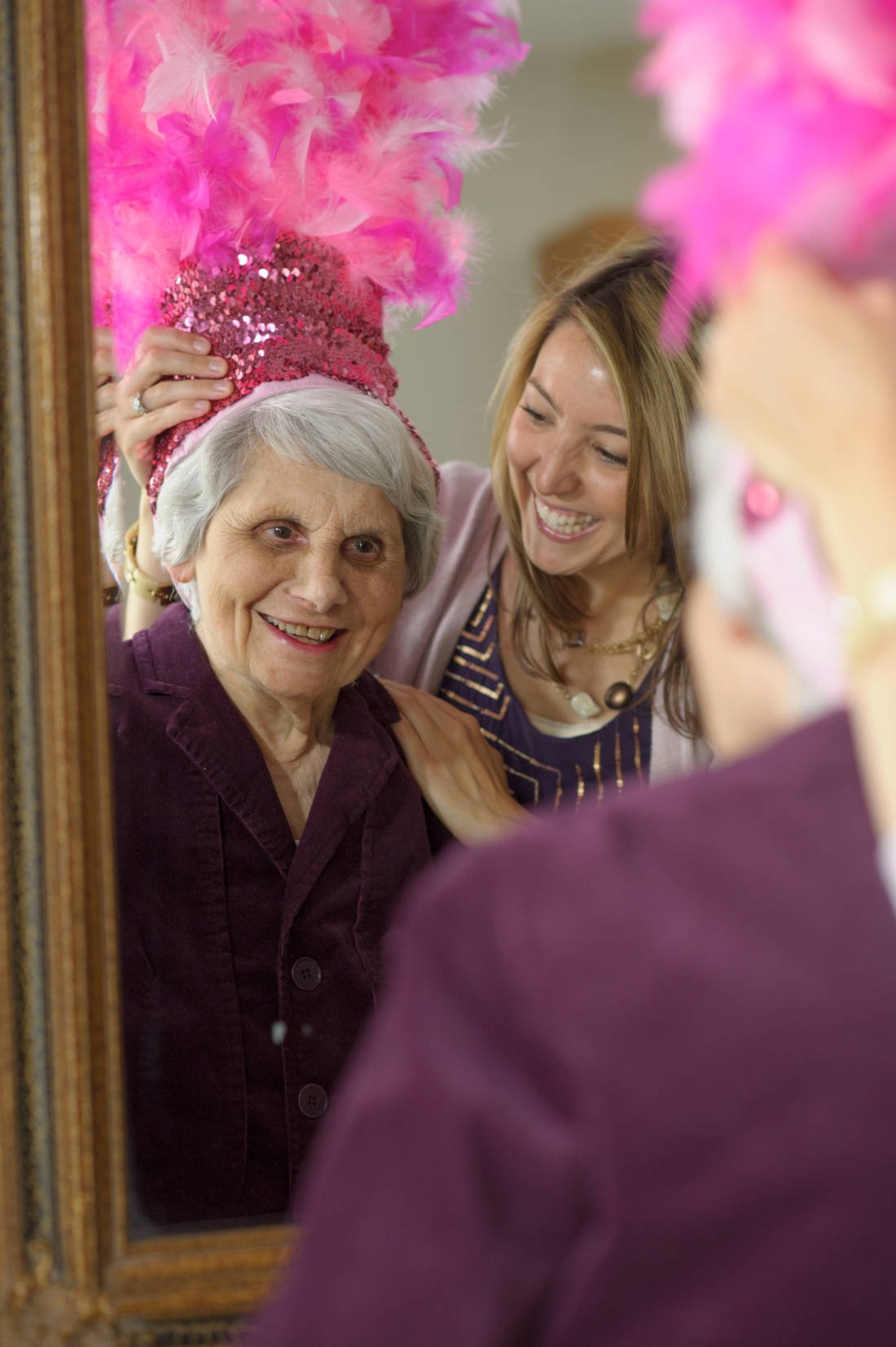Six Ways to Help Your Aging Loved One Declutter
 Clutter isn't just an inconvenience, it's a safety hazard. “Simplify Your Life" Month offers the perfect opportunity to help your aging loved one enjoy a clutter-free living space.
Clutter isn't just an inconvenience, it's a safety hazard. “Simplify Your Life" Month offers the perfect opportunity to help your aging loved one enjoy a clutter-free living space.
Clutter is a very real problem for many seniors, and the issue extends far beyond aesthetic details in most cases.
In fact, clutter can lead to health and wellness threats including everything from unpaid bills to forgotten medications to trip and fall hazards.
If your aging loved one struggles to manage an excess of “stuff,” consider these six ways you can help him conquer the clutter and enjoy a more peaceful, ordered living environment.
1. Talk About It
Your parent may be wondering why something that doesn’t bother him may be bothering you. He may also be feeling defensive because his mess has reached an unmanageable point. Initiate a judgment-free discussion expressing your concerns and volunteering your assistance.
Be as specific as possible. Are you afraid your loved one will fall because of clutter-strewn pathways, or fearful that important medication is getting lost in the piles of accumulating stuff? Choose a safe, familiar location, and keep the focus on how decluttering can help your loved one enjoy a healthier, happier like.
2. Treat the Problem, Not the Symptoms
While some people are hoarders by nature, others turn to this habit because of circumstance. This is particularly true for seniors, who may be hanging onto old belongings to feel connected to their former lives and/or maintain a sense of independence.
Other potential causes of clutter can include cognitive decline and memory disorders, such as dementia and Alzheimer’s disease. Memory deficits can cause confusion regarding what should stay and what should go, and how to properly store and organize common household items.
Look for signs and symptoms of dementia and be aware of any patterns you observe before being quick to label your loved one as a “hoarder”. Acknowledging why your loved one is accumulating clutter is an important part of treating the problem.
3. Banish Bills
Cable. Heat. Water. Electric. The last thing you want is your loved one’s heat shut off because a bill was buried beneath a pile of other things. Unfortunately, paperwork adds up and important documents can get lost in the shuffle. Rather than risking it, arrange for your loved one to use automatic bill pay. It may take some time for him to accept the switch, but he'll may quickly adjust to the convenience and practicality of this arrangement.
4. Start Slow
If your loved one is reluctant to let go of his belongings, give him time and space to come around to the idea. After all, for many seniors clutter isn’t as much about accumulating new stuff as it is holding onto a former way of life. Instead of undertaking a massive decluttering project, pick one small thing you can do to help get clutter under control and go from there. Once your loved one realizes not only how easy it is, but also how much he enjoys the final product, he’ll be much more likely to embrace future decluttering tasks.
5. Gain Help, Not Hopelessness
Is your loved one's house or apartment overwhelmed by clutter to the point where you don't even know where to begin? If so, a professional organizer may be in order. He/she will work with you and your aging loved one to get organized and overcome the clutter problem. A professional organizer may also conduct follow-up visits to help your loved one stay on track and ahead of the clutter before it forms again.
6. Celebrate Your Success
While letting go of one thing may not seem like a big deal to you, it may mean the world to your loved one. After a successful decluttering effort, be sure to celebrate and enjoy the simplified space - maybe even host a small get-together with family or friends as a way to reward your hard work and stay motivated in the weeks to come. Set goals and rewards for holding onto gains, and try to schedule a routine day for upkeep to make tasks more manageable.
While cleaning house may not be your idea of fun, there's an excellent reason for it: your loved one will benefit from better health, safety and peace of mind thanks to the clutter-free environment.
Looking to escape the clutter nightmare altogether? Consider the maintenance-free lifestyle of a senior living community and enjoy many helping hands! In addition to providing maintenance and housekeeping services, staff can also provide advice on downsizing and selling a home, making a move, and maintaining a safe home environment.
Key Takeaways
- Your aging loved one’s clutter problem may have nothing to do with clutter and everything to do with other issues, such as fear of loss or loneliness.
- Open lines of communication can help you understand each other’s needs and work toward a solution.
- Scheduling time for upkeep can help you stay ahead of the problem if it arises.
- Consider a senior living community if you and/or your loved one are looking for a maintenance-free lifestyle.
About Marissa Salvesen
My journey into the world of senior living began when I started working for United Methodist Homes in 2010. Starting as an Activities Director at one of our award-winning assisted and independent living communities and then transitioning to Marketing and Promotions Manager for UMH, I now work as the Manager of Mission Development, fostering the Mission and Values of our organization. I love sharing stories about the many ways we build meaningful relationships and enrich the lives of those we serve, and am proud to be part of building UMH’s 140-year legacy of caring. Wondering what makes our communities such special places to live and work? Connect with me and find out!

Our Blog is a 2016 Platinum Generations Award Winner! The Generations Award is an annual international competition for excellence in senior marketing recognizing professionals who have communicated to the 50+ Mature Markets.



